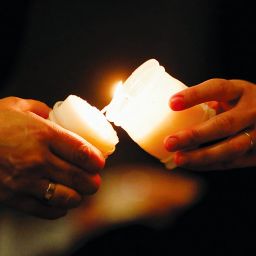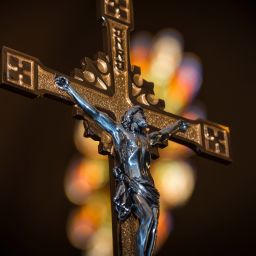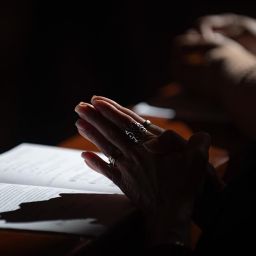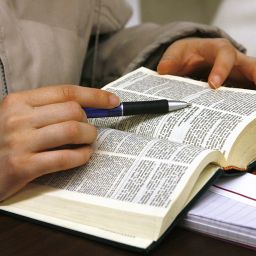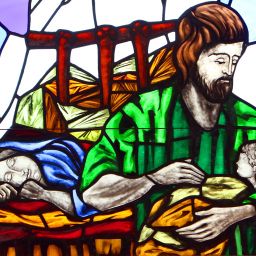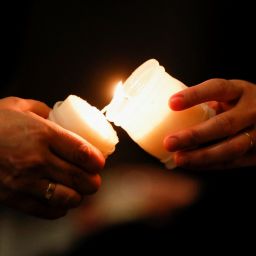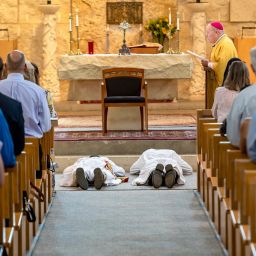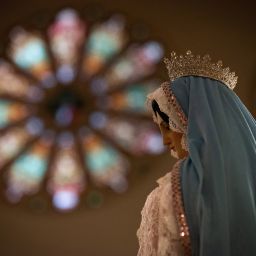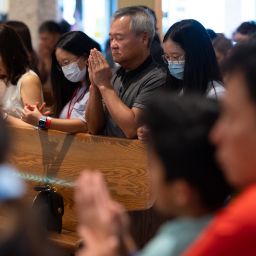By Father Thomas Esposito, O.Cist.
Special to The Texas Catholic
String bracelets with the code WWJD? became a pious fashion trend in the late 90s, and they remain visible today on many teenage wrists. Coming in a variety of bright colors, the bracelets are a visible examination of conscience to the wearer: “What Would Jesus Do?” is a fruitful question to ask oneself in a moment of temptation. Those who wear the bracelet do well to make Jesus their standard of virtuous living as they prudently ponder the proper action to take.
But I am ambivalent about the premise of the question. Jesus of Nazareth, the first-century son of a Galilean carpenter, never encountered many of the life situations that confront us today; from phones and rush hour traffic to nuclear energy and Swifties, the Gospels do not directly address many topics to which people apply the question posed on the bracelet. It is often an impossible question to answer, though the moral law does give us some certainty about Jesus’ response in obvious instances of evil or malice.
I also have a difficulty with the occasional use made of WWJD? bracelet logic. I have heard people argue that Jesus would do what the wearer would want him to do, as long as the wearer is sincere. A novel paraphrase of the Golden Rule comes to mind in light of this self-sanctioning of one’s personal moral preferences: “I tell Jesus how I want him to do unto others as I tell them, “You do you!” This declaration sounds extreme (and it surely is), but it is often the undercurrent of claims that Jesus would never judge anyone, and that mercy requires my own personal interpretation of Jesus to sanction all deeds, regardless of moral and theological discrepancies.
Essential to this problematic use of bracelet logic is an understanding of conscience as the ultimate referee of truth for an individual. This minimizes any notion of a common good and grants a de facto infallibility to conscience, allowing it to reign over all internal decisions as a personal pope! Following this logic to its conclusion, there is no authority beyond the individual’s experience or feeling about a given situation; Gospel and doctrinal precepts are treated as broad suggestions or ideals that are (usually) too stringent to be practical or convenient.
The very name of conscience, though, implies an external voice, a law greater than one’s own will or personal judgment: cum scientia translates literally as “with knowledge.” Conscience is a servant, not a benevolent and indulgent judge. Throughout the New Testament, adjectives such as “good” and “pure” are connected to the word “conscience” to reinforce this very point (see 1 Timothy 1:5, 19; 3:9; 2 Timothy 1:3; 1 Peter 3:16-17, 21). Conscience must be informed by the standard of charity: the Gospel and the law written on the heart (Romans 2:15), as lived out by the saints and transmitted by the Lord’s apostles and their successors.
In the Christian tradition, conscience is not an artist creating right and wrong content for oneself. It is not the agent but the instrument, an aqueduct with sturdy walls channeling the love, justice, and mercy of Christ, who wishes to find sanctuary within, as beautifully noted in the Vatican II document Gaudium et Spes, paragraph 16.
Is it just a bracelet? Yes. Is every WWJD? bracelet wearer a moral relativist? Of course not. Am I writing this column at the eleventh hour, straining desperately to string semi-coherent thoughts together with questionable success? Maybe…
Perhaps I could make my point clearer by proposing two new bracelets to complement the original WWJD? one. I would thus create a trio that features synonymous questions. The first would be HCIBAS?, “How Can I Become A Saint?” The second would be WDTCCT?, “What Does The Catholic Church Teach?” I admit that the acronyms are pretty clunky, so I would need some PR help in marketing them; but I have no doubt that the combination of Jesus, the saints, and the teaching of the Church yields identical answers if the questions are understood and lived correctly.
Father Thomas Esposito, O.Cist., is a monk at the Cistercian Abbey of Our Lady of Dallas and teaches in the theology department at the University of Dallas.
Father Thomas Esposito, O.Cist., is a monk at the Cistercian Abbey of Our Lady of Dallas and teaches in the theology department at the University of Dallas.


